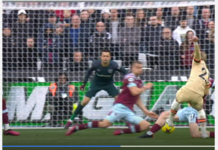4. Video assistant referee (VAR)
The use of video assistant referees (VARs) is only permitted where the match/competition organiser has fulfilled all Implementation Assistance and Approval Programme (IAAP) requirements as set out in FIFA's IAAP documents, and has received written permission from FIFA.
The referee may be assisted by a video assistant referee (VAR) only in the event of a 'clear and obvious error' or 'serious missed incident' in relation to:
- goal/no goal
- penalty/no penalty
- direct red card (not second caution)
- mistaken identity when the referee cautions or sends off the wrong player of the offending team
The assistance from the video assistant referee (VAR) will relate to using replay(s) of the incident. The referee will make the final decision which may be based solely on the information from the VAR and/or the referee reviewing the replay footage directly ('on-field review').
Except for a 'serious missed incident' the referee (and where relevant other 'on-field', match officials) must always make a decision (including a decision not to penalise a potential offence); this decision does not change unless it is a 'clear and obvious error'.
REVIEWS AFTER PLAY HAS RESTARTED
If play has stopped and restarted, the referee may only undertake a 'review', and take the appropriate disciplinary sanction, for mistaken identity or for a potential sending off offence relating to violent conduct, spitting, biting or extremely offensive, insulting and/or abusive action(s).

